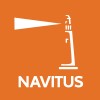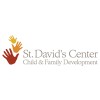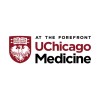Are you applying to the internship?
Job Description
About company
OCHIN is an equal opportunity educational provider dedicated to fostering an inclusive and equitable environment for all learners, team members, and applicants. They uphold a strict policy of non-discrimination based on race, creed, color, sex, sexual orientation, gender identity or expression, religion, national origin, age, disability, genetic information, marital status, veteran status, or any other legally protected status. OCHIN is committed to making program entry, training, and educational opportunity decisions based on individual qualifications and abilities, actively seeking to attract diverse learners and team members. They affirmatively support equal access and opportunity for women, minorities, individuals with disabilities, special disabled veterans, and other covered veterans, striving to create an inclusive learning environment that fosters success and reflects diverse communities.
For program participants, OCHIN requires COVID-19 vaccination (or approved exemption) for all training, internships, and externships. For on-site placements, participants must also meet host site-specific immunization requirements (e.g., influenza, hepatitis B, MMR) and may need to complete tuberculosis (Tb) testing and drug screening. Stipend payments for the training program are made on OCHIN’s semi-monthly pay schedule.
Job description, detailed
This is a Community Health Worker (CHW) Training Program, which is a grant-funded training program, not an employment opportunity. Employment is not guaranteed at the completion of the program.
Program Purpose:
The program aims to teach essential concepts and skills to function as a Community Health Worker (CHW), acting as a vital bridge between healthcare, social services, and community members. Upon completion, participants will receive the credit hours necessary to apply for CHW licensure in Oregon. It is designed for anyone committed to helping patients and their families gain timely, individualized access to quality health care and specialized community support services, suitable for students of any background, including those new to healthcare.
Program Structure and Details:
• Next Cohort Begins: 8/19/2025.
• Location Requirement: Qualified Candidates must live within 30-45 minutes from the Service Site in Eugene, Oregon.
• Format: Includes both online classroom training (didactic learning) and on-site hands-on internship/externship training.
• Duration: Approximately 550 hours total, consisting of approximately 150 hours of didactic learning and 400 hours of on-site in-person internship.
• Schedule: Learners are required to participate Mon-Fri, 8 AM-5 PM for the entire duration (approximately 16 weeks).
• Stipend: A Total Stipend of $7,500 is distributed over approximately 16 weeks for participation, paid on OCHIN’s semi-monthly pay schedule.
Eligibility Requirements:
• Must be 18 years or older.
• MUST NOT have prior professional or volunteer experience in healthcare/community health work (no healthcare licenses/certifications).
• Must live within 30-45 minutes from the Service site location of Eugene, OR.
• Must have a high school diploma or GED.
• Must be a U.S. Citizen or Permanent Resident/Green Card holder (not open to non-citizens or Visa holders).
• Familiarity with Microsoft Office Suite, particularly Word, Excel, and PowerPoint, is beneficial.
• Must be able to pass a national criminal background check successfully.
Important Program Notes:
• Selection for participation in the training program is NOT guaranteed.
• Applying or being referred to apply does NOT guarantee acceptance, as participation is subject to HRSA enrollment guidelines.
• Participants are responsible for completing all required health screenings (Tb testing, drug screening) by the site’s deadline to avoid delays.
Training Program Covers:
• History of Community Health Workers
• Introduction to Community Health Workers
• Health Promotion & Disease Prevention
• Health Literacy as a Barrier
• Telehealth Literacy
• Broad Determinants of Health
• Health Disparities
• Cultural Health Beliefs
• Communication Techniques
• Managing Referrals
• Healthcare Financing
• Legal Advocacy
• Documentation
• Safety Concerns
• Screening for Social Risk Factors
• EHR Systems & Population Health Management
• Technology in Community Care
• Social Service Resource Locators.
Training Program Benefits:
• Play a pivotal role in advancing health equity and strengthening community care.
• Learn to advocate on behalf of patients and their families, facilitating timely access to key community resources including information, insurance, food, housing, and more.
• Special emphasis on working in community-based settings, covering communication barriers, health model characteristics, and the impact of culture and socioeconomic status on health.
Typical Community Health Worker (CHW) Duties (after training):
CHWs play a vital and unique role in linking diverse and underserved populations to health and social service systems. They primarily work in the community with specific target populations and collaborate closely with medical providers, primary care teams, and other agencies to improve patient care and outcomes. Their duties include, but are not limited to:
• Establishing trusting relationships with patients and families, providing support and feedback.
• Coaching patients in chronic health condition management and self-care.
• Conveying program purposes and impacts to the user population.
• Assisting patients in understanding care plans and instructions.
• Potentially visiting patients in their homes to assess conditions and meet family/caretakers.
• Documenting activities, service plans, and results while adhering to policies.
• Advocating for patients and acting as a liaison between patients/families and community service agencies.
• Helping patients utilize resources, including scheduling appointments and assisting with applications.
• Assisting patients in accessing health-related services (e.g., obtaining a medical home, overcoming barriers).
• Facilitating communication and coordinating services between providers.
• Motivating patients to be active, engaged participants in their health.
• Effectively working with diverse individuals to reduce cultural and socio-economic barriers.
• Building and maintaining positive working relationships with clients, providers, and other staff.
• Continuously expanding knowledge of community resources, services, and human relations.
• Other duties as assigned.




